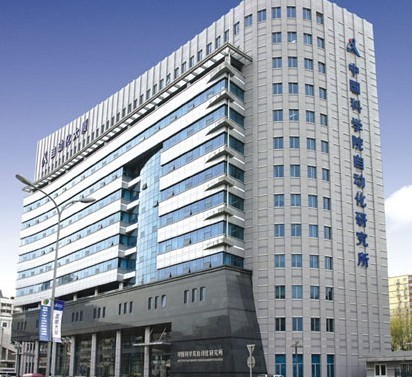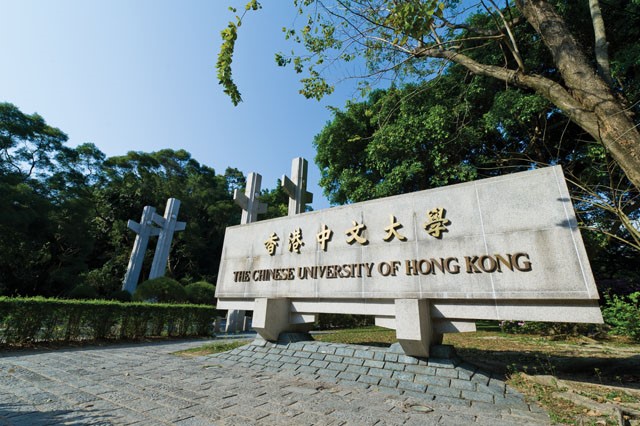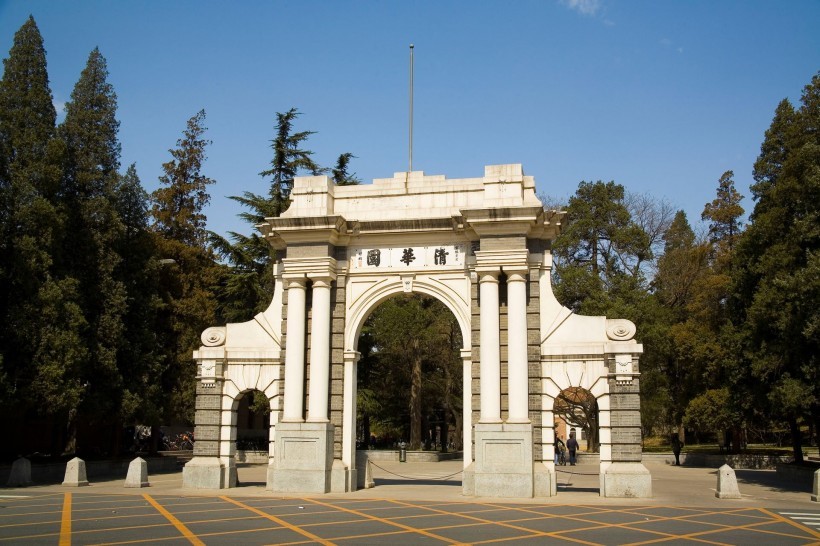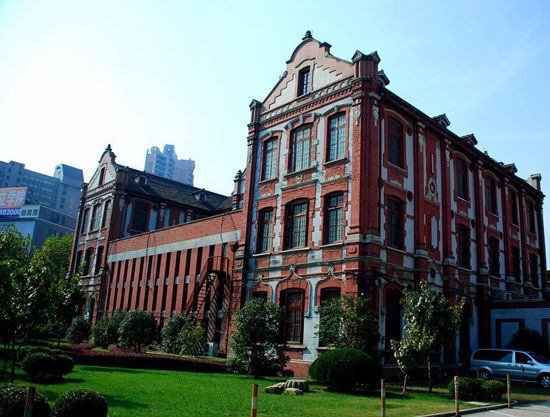Organizers
 Chinese Academy of Sciences
Chinese Academy of SciencesThe Institute of Automation of the Chinese Academy of Sciences (CASIA) was established in 1956 as one of the earliest national institutions in China. The institute focuses on three main areas of intelligent technology: intelligent processing of massive information, intelligent control of complex systems, and integrated intelligent systems. CASIA produces innovative theory, key technology and conceptual systems to meet the strategic needs of the nation and of industry, making it well known worldwide in the field of intelligence science and technology.
As of the end of 2013, the institute had 294 full professors, associate professors or senior engineers. Among them, there are 6 IEEE fellows and 19 CAS Hundred Talents Program fellows. More than 20 members are served as editor-in-chief or associated editor for international journals, e.g., IEEE PAMI, IEEE ASLP, Speech Communication, IEEE TAFFC, IEEE SMCB, etc.. Moreover, the institute has 356 Ph.D. candidates, 264 master’s students and 42 postdoctoral researchers.
The institute has 11 research departments, including two national key laboratories, one national engineering center and one CAS key laboratory. Specific research fields include: speech and language processing, human brain computation based on neural computing, computer vision and graphics, precise perception and intelligent control. The research results are published in prestigious journals and conferences, filed in patents, and transferred to application systems.
CASIA has established academic links with numerous leading research institutions and universities around the world. In addition, the institute has organized (or will organize) many important conferences, including the Coling 2010, ACL 2015, ICPR 2018, ICCV 2005, MICCAI 2010, IJCAI 2013, WCCI 2014, ICMI 2000, IEEE MLSP 2011, AVSS 2012, ISCSLP 2000,etc..
Chinese University of Hong Kong
 http://www.cuhk.edu.hk/
http://www.cuhk.edu.hk/Founded in 1963, The Chinese University of Hong Kong (CUHK) is a forward-looking comprehensive research university with a global vision and a mission to combine tradition with modernity, and to bring together China and the West. CUHK teachers and students hail from all around the world.
As a top university in Hong Kong and Asia, CUHK aims to nurture students with both specialized knowledge and wisdom for life. The education experience here is distinguished by a flexible credit unit system, a college system, bilingualism and multiculturalism. There are general education courses to broaden students' perspectives and develop in them the ability to face the challenges of contemporary society. Our eight Faculties offer a wide array of excellent undergraduate and postgraduate programmes.
CUHK undertakes a wide range of research programmes in many subject areas, and strives to provide scope for all academic staff to undertake consultancy and collaborative projects with industry. The University's insistence on the highest standards of research has won it an enviable research reputation. Hong Kong's University Grants Committee (UGC) provides preferential grant funding to the local tertiary institutions to conduct research into 24 selected Areas of Excellence (AoEs). Nine of these AoEs are being led by researchers from CUHK. The University houses five state key laboratories which are entrusted by the Ministry of Science and Technology of China to produce research of international quality and carry out important national research tasks. The University also has an excellent record of published research, both in discipline-specific journals and in more high-profile publications such as Science, Nature, and The Lancet.
Of all Hong Kong universities, CUHK is the only one that offers a college experience. To our constituent colleges, Chung Chi, New Asia, United and Shaw, have recently been added Morningside, S.H. Ho, C.W. Chu, Wu Yee Sun and Lee Woo Sing, bring up the total number of colleges to nine. College programmes and activities complement the formal curricula by delivering whole-person education and pastoral care. The college system also encourages intimate interaction among teachers, students and alumni.
Tsinghua University
http://www.tsinghua.edu.cn The campus of Tsinghua University is situated in northwest Beijing on the site of the former imperial gardens of the Qing Dynasty, and surrounded by a number of historical sites.
The campus of Tsinghua University is situated in northwest Beijing on the site of the former imperial gardens of the Qing Dynasty, and surrounded by a number of historical sites.Tsinghua University was established in 1911, originally under the name “Tsinghua Xuetang”. The school was renamed "Tsinghua School" in 1912. The university section was founded in 1925. The name “National Tsinghua University” was adopted in 1928.
The faculty greatly valued the interaction between Chinese and Western cultures, the sciences and humanities, the ancient and modern. Tsinghua scholars Wang Guowei, Liang Qichao, Chen Yinque and Zhao Yuanren, renowned as the "Four Tutors" in the Institute of Chinese Classics, advocated this belief and had a profound impact on Tsinghua's later development.
Tsinghua University was forced to move to Kunming and join with Peking University and Nankai University to form the Southwest As-sociated University due to the Resistance War against the Japanese Invasion in 1937. In 1946 The University was moved back to its original location in Beijing after the war.
After the founding of the People's Republic of China, the University was molded into a pol-ytechnic institute focusing on engineering in the nationwide restructuring of universities and colleges undertaken in 1952. In November 1952, Mr. Jiang Nanxiang became the Presi-dent of the University. He made significant contributions in leading Tsinghua to become the national center for training engineers and scientists with both professional proficiency and personal integrity.
Since China opened up to the world in 1978, Tsinghua University has developed at a breathtaking pace into a comprehensive re-search university. At present, the university has 20 schools and 58 departments with fac-ulties in science, engineering, humanities, law, medicine, history, philosophy, economics, management, education and art.
With the motto of “Self-Discipline and Social Commitment” and the spirit of “Actions Speak Louder than Words”, Tsinghua University is dedicated to the well-being of Chinese society and to world development. As one of China’s most prestigious and influential universities, Tsinghua is committed to cultivating global citizens who will thrive in today’s world and become tomorrow’s leaders. Through the pursuit of education and research at the highest level of excellence, Tsinghua is de-veloping innovative solutions that will help solve pressing problems in China and the world.
Shanghai Jiao Tong University
http://www.sjtu.edu.cn/ Shanghai Jiao Tong University (SJTU), as one of the higher education institutions which enjoy a long history and a world-renowned reputation in China, is a key university directly under the administration of the Ministry of Education (MOE) of the People's Republic of China and co-constructed by MOE and Shanghai Municipal Government. Through 120 years' unremitting efforts, SJTU has become a comprehensive, research-oriented, and internationalized top university in China.
Shanghai Jiao Tong University (SJTU), as one of the higher education institutions which enjoy a long history and a world-renowned reputation in China, is a key university directly under the administration of the Ministry of Education (MOE) of the People's Republic of China and co-constructed by MOE and Shanghai Municipal Government. Through 120 years' unremitting efforts, SJTU has become a comprehensive, research-oriented, and internationalized top university in China.SJTU enjoys an increasingly high scientific research level and technology innovation level. Up to 2015, SJTU led the country for the 6th consecutive year in terms of both the project number and the amount of money issued by National Natural Science Foundation of China, ranked second in sponsored research grants. The number and other indexes of SCI papers of SJTU rank among the top for years, with 5,398 SCI papers in 2014 remaining the second among all the universities in China. The total number of SCI-cited papers from 2005 to 2014 reaches 35,488, with 308,723 times of citation, ranking the second in China. 2,402 papers were regarded as "doing-a-good-job" papers, ranking the second in China. 1220 co-authored papers with SJTU as the first-author affiliation were published on international journals, staying the second in China with a year-on-year growth of 162 papers. 181 papers were selected in the "154 most influential international academic papers in China; ranking the third. 762 papers in different fields were published on journals whose Impact Factors are among the top 10 percent, ranking the fourth in China with a year-on-year growth of 76 papers. 8 papers were included in the four most prestigious journals (SCIENCE, NATURE, CELL, PNAS), ranking the fourth in China. 7,712 sci-tech papers were published domestically, with 26,068 times of citation nationwide, ranking the first in China.
With profound cultural background, an age-old tradition on education, strenuous development history, and great achievements made since the reform and opening up, SJTU has attracted wide attention both inside and outside China. Carrying the mission of preserving cultural heritage, and seeking for the truth, bearing the responsibility of invigorating the Chinese nation and developing for the benefits of mankind, today this centennial university is sailing for the aim of becoming a comprehensive, research-oriented and internationalized world-class university.
Chinese Academy of Sciences
http://www.ia.ac.cn/ 
The Institute of Automation of the Chinese Academy of Sciences (CASIA) was established in 1956 as one of the earliest national institutions in China. The institute focuses on three main areas of intelligent technology: intelligent processing of massive information, intelligent control of complex systems, and integrated intelligent systems. CASIA produces innovative theory, key technology and conceptual systems to meet the strategic needs of the nation and of industry, making it well known worldwide in the field of intelligence science and technology.
As of the end of 2013, the institute had 294 full professors, associate professors or senior engineers. Among them, there are 6 IEEE fellows and 19 CAS Hundred Talents Program fellows. More than 20 members are served as editor-in-chief or associated editor for international journals, e.g., IEEE PAMI, IEEE ASLP, Speech Communication, IEEE TAFFC, IEEE SMCB, etc.. Moreover, the institute has 356 Ph.D. candidates, 264 master’s students and 42 postdoctoral researchers.
The institute has 11 research departments, including two national key laboratories, one national engineering center and one CAS key laboratory. Specific research fields include: speech and language processing, human brain computation based on neural computing, computer vision and graphics, precise perception and intelligent control. The research results are published in prestigious journals and conferences, filed in patents, and transferred to application systems.
CASIA has established academic links with numerous leading research institutions and universities around the world. In addition, the institute has organized (or will organize) many important conferences, including the Coling 2010, ACL 2015, ICPR 2018, ICCV 2005, MICCAI 2010, IJCAI 2013, WCCI 2014, ICMI 2000, IEEE MLSP 2011, AVSS 2012, ISCSLP 2000,etc..
Chinese University of Hong Kong
http://www.cuhk.edu.hk/
Founded in 1963, The Chinese University of Hong Kong (CUHK) is a forward-looking comprehensive research university with a global vision and a mission to combine tradition with modernity, and to bring together China and the West. CUHK teachers and students hail from all around the world.
As a top university in Hong Kong and Asia, CUHK aims to nurture students with both specialized knowledge and wisdom for life. The education experience here is distinguished by a flexible credit unit system, a college system, bilingualism and multiculturalism. There are general education courses to broaden students' perspectives and develop in them the ability to face the challenges of contemporary society. Our eight Faculties offer a wide array of excellent undergraduate and postgraduate programmes.
CUHK undertakes a wide range of research programmes in many subject areas, and strives to provide scope for all academic staff to undertake consultancy and collaborative projects with industry. The University's insistence on the highest standards of research has won it an enviable research reputation. Hong Kong's University Grants Committee (UGC) provides preferential grant funding to the local tertiary institutions to conduct research into 24 selected Areas of Excellence (AoEs). Nine of these AoEs are being led by researchers from CUHK. The University houses five state key laboratories which are entrusted by the Ministry of Science and Technology of China to produce research of international quality and carry out important national research tasks. The University also has an excellent record of published research, both in discipline-specific journals and in more high-profile publications such as Science, Nature, and The Lancet.
Of all Hong Kong universities, CUHK is the only one that offers a college experience. To our constituent colleges, Chung Chi, New Asia, United and Shaw, have recently been added Morningside, S.H. Ho, C.W. Chu, Wu Yee Sun and Lee Woo Sing, bring up the total number of colleges to nine. College programmes and activities complement the formal curricula by delivering whole-person education and pastoral care. The college system also encourages intimate interaction among teachers, students and alumni.
Tsinghua University
http://www.tsinghua.edu.cn
The campus of Tsinghua University is situated in northwest Beijing on the site of the former imperial gardens of the Qing Dynasty, and surrounded by a number of historical sites.
Tsinghua University was established in 1911, originally under the name “Tsinghua Xuetang”. The school was renamed "Tsinghua School" in 1912. The university section was founded in 1925. The name “National Tsinghua University” was adopted in 1928.
The faculty greatly valued the interaction between Chinese and Western cultures, the sciences and humanities, the ancient and modern. Tsinghua scholars Wang Guowei, Liang Qichao, Chen Yinque and Zhao Yuanren, renowned as the "Four Tutors" in the Institute of Chinese Classics, advocated this belief and had a profound impact on Tsinghua's later development.
Tsinghua University was forced to move to Kunming and join with Peking University and Nankai University to form the Southwest As-sociated University due to the Resistance War against the Japanese Invasion in 1937. In 1946 The University was moved back to its original location in Beijing after the war.
After the founding of the People's Republic of China, the University was molded into a pol-ytechnic institute focusing on engineering in the nationwide restructuring of universities and colleges undertaken in 1952. In November 1952, Mr. Jiang Nanxiang became the Presi-dent of the University. He made significant contributions in leading Tsinghua to become the national center for training engineers and scientists with both professional proficiency and personal integrity.
Since China opened up to the world in 1978, Tsinghua University has developed at a breathtaking pace into a comprehensive re-search university. At present, the university has 20 schools and 58 departments with fac-ulties in science, engineering, humanities, law, medicine, history, philosophy, economics, management, education and art.
With the motto of “Self-Discipline and Social Commitment” and the spirit of “Actions Speak Louder than Words”, Tsinghua University is dedicated to the well-being of Chinese society and to world development. As one of China’s most prestigious and influential universities, Tsinghua is committed to cultivating global citizens who will thrive in today’s world and become tomorrow’s leaders. Through the pursuit of education and research at the highest level of excellence, Tsinghua is de-veloping innovative solutions that will help solve pressing problems in China and the world.
Shanghai Jiao Tong University
http://www.sjtu.edu.cn/
Shanghai Jiao Tong University (SJTU), as one of the higher education institutions which enjoy a long history and a world-renowned reputation in China, is a key university directly under the administration of the Ministry of Education (MOE) of the People's Republic of China and co-constructed by MOE and Shanghai Municipal Government. Through 120 years' unremitting efforts, SJTU has become a comprehensive, research-oriented, and internationalized top university in China.
SJTU enjoys an increasingly high scientific research level and technology innovation level. Up to 2015, SJTU led the country for the 6th consecutive year in terms of both the project number and the amount of money issued by National Natural Science Foundation of China, ranked second in sponsored research grants. The number and other indexes of SCI papers of SJTU rank among the top for years, with 5,398 SCI papers in 2014 remaining the second among all the universities in China. The total number of SCI-cited papers from 2005 to 2014 reaches 35,488, with 308,723 times of citation, ranking the second in China. 2,402 papers were regarded as "doing-a-good-job" papers, ranking the second in China. 1220 co-authored papers with SJTU as the first-author affiliation were published on international journals, staying the second in China with a year-on-year growth of 162 papers. 181 papers were selected in the "154 most influential international academic papers in China; ranking the third. 762 papers in different fields were published on journals whose Impact Factors are among the top 10 percent, ranking the fourth in China with a year-on-year growth of 76 papers. 8 papers were included in the four most prestigious journals (SCIENCE, NATURE, CELL, PNAS), ranking the fourth in China. 7,712 sci-tech papers were published domestically, with 26,068 times of citation nationwide, ranking the first in China.
With profound cultural background, an age-old tradition on education, strenuous development history, and great achievements made since the reform and opening up, SJTU has attracted wide attention both inside and outside China. Carrying the mission of preserving cultural heritage, and seeking for the truth, bearing the responsibility of invigorating the Chinese nation and developing for the benefits of mankind, today this centennial university is sailing for the aim of becoming a comprehensive, research-oriented and internationalized world-class university.
Calls
Program
Sponsorships & Exhibition


